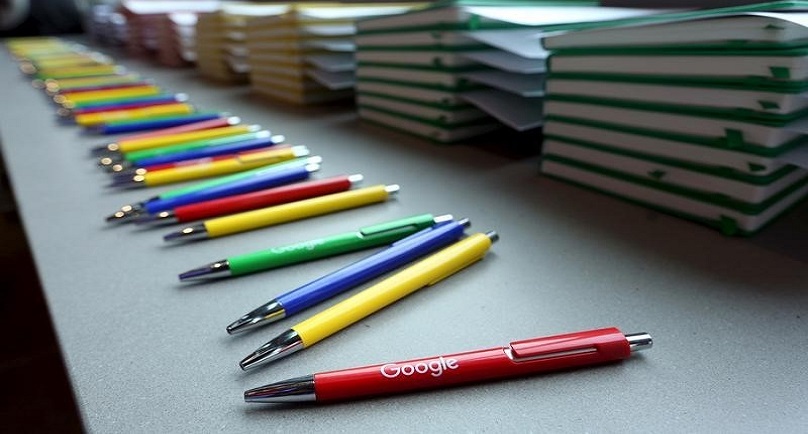Image: Pens and notebooks in Google’s colors are prepared for the media before the unveiling of Google’s new Canadian engineering headquarters in Kitchener-Waterloo, Ontario January 14, 2016. REUTERS/Peter Power/Files
By Lawrence Hurley
WASHINGTON (Reuters) – The U.S. Supreme Court on Monday declined to hear a challenge by a group of authors who contend that Google’s massive effort to scan millions of books for an online library violates copyright law.
The Authors Guild and several individual writers have argued that the project, known as Google Books, illegally deprives them of revenue. The high court left in place an October 2015 ruling by the 2nd U.S. Circuit Court of Appeals in New York in favor of Google.
A unanimous three-judge appeals court panel said the case “tests the boundaries of fair use,” but found Google’s practices were ultimately allowed under the law.
The individual plaintiffs who filed the proposed class action against Google included former New York Yankees pitcher Jim Bouton, who wrote the acclaimed memoir “Ball Four.”
Several prominent writers, including novelist and poet Margaret Atwood and lyricist and composer Stephen Sondheim, signed on to a friend-of-the-court brief backing the Authors Guild.
The authors sued Google, whose parent company is Alphabet Inc, in 2005, a year after the project was launched. A lower court dismissed the litigation in 2013, prompting the authors’ appeal.
Google argued that the effort would actually boost book sales by making it easier for readers to find works, while introducing them to books they might not otherwise have seen.
The company made digital copies of more than 20 million books, according to court papers. Some publishers agreed to allow Google to copy their works.
Google Books allows users to search the content of the books and displays excerpts that’show the relevant search results. Google says in court papers the service “gives readers a dramatically new way to find books of interest” and lets people know where they can buy them. Users cannot read “any substantial portion of any book,” Google said.
Google had said it could have faced billions of dollars in potential damages if the authors had prevailed.
The case is Authors Guild v. Google Inc, U.S. Supreme Court, No. 15-849
Copyright 2015 Thomson Reuters. Click for Restrictions.


